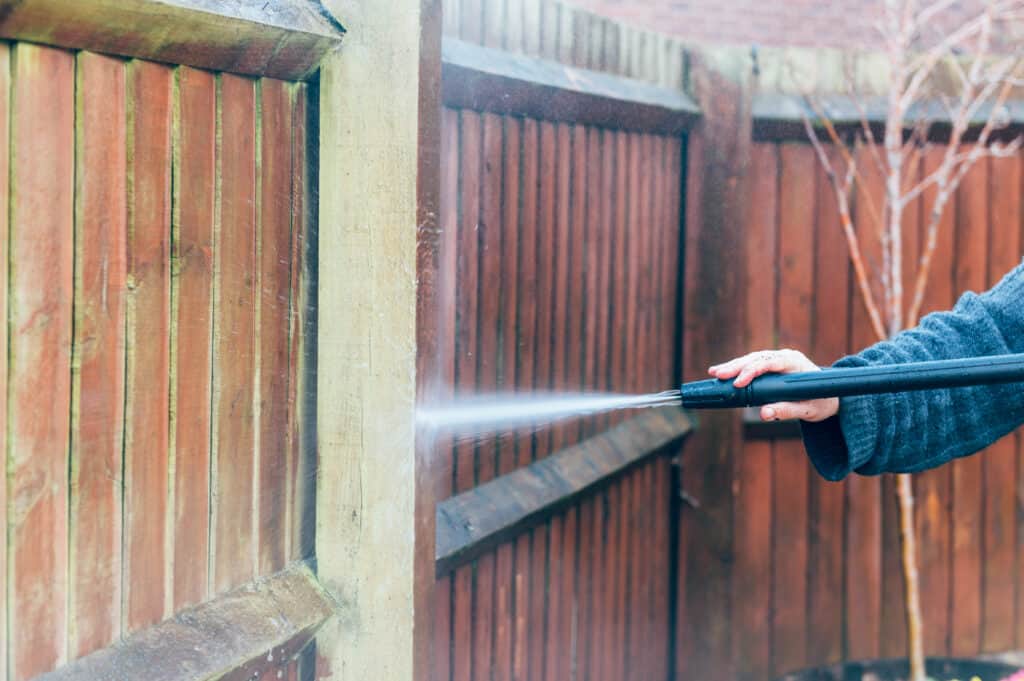
How Long Does a Wood Fence Last?
Are you thinking about installing a wood fence but unsure of its lifespan? Look no further! In this article, we’ll explore the factors that affect how long does a wood fence last and provide you with essential tips to extend its longevity. Understanding these factors will help you make an informed decision and ensure you get the most out of your investment.
With proper care, wood fences can last up to 20 years. We’ll discuss the best wood options, like cedar and redwood, known for their durability. We’ll also cover pressure-treated wood, a popular choice treated to resist moisture, insects, fungi, and fire.
Keep reading to ensure your wood fence stands strong for years to come!
Key Takeaways
- The average lifespan of a wood fence is 15 years, but it can last up to 20 years with proper maintenance.
- Factors that affect wood fence longevity include the type of wood used, external forces like weather, and maintenance.
- Cedar and redwood are popular choices for wood fences due to their natural durability.
- Pressure-treated wood is an option for increased resistance to moisture, fungi, insects, and fire.
Factors Affecting Wood Fence Lifespan

Several factors play a significant role in determining how long does a wood fence last, making it important to consider what affects its lifespan.
The type of wood used, such as pressure-treated wood, can greatly impact durability. Pressure-treated wood is infused with chemicals that increase its resistance to moisture, fungi, insects, and even fire, helping it last longer.
Regular maintenance is also essential in prolonging the life of your wood fence. Inspect it annually for signs of decay, such as rotting or cracking boards, failing posts, or loose nails. Promptly replacing any damaged boards can prevent further deterioration.
Additionally, keeping plants and trees away from the fence helps prevent moisture accumulation and insect infestations, both of which can shorten its lifespan.
Vinyl Fence Lifespan
When considering how long does a wood fence last, it’s also worth comparing it to other materials, such as vinyl. Vinyl fences have become increasingly popular due to their durability and minimal maintenance requirements.
Here are four key points about the lifespan of vinyl fences:
- Vinyl fence lifespan: On average, vinyl fences can last up to 50 years, making them a long-lasting option for homeowners.
- Low maintenance: Vinyl fences require minimal maintenance compared to wood fences. They don’t require staining, painting, or sealing, saving you time and effort.
- Limited lifetime warranty: Many vinyl fence manufacturers offer a limited lifetime warranty, providing peace of mind to homeowners.
- Variety of styles and colors: Vinyl fences come in a wide range of styles and colors, allowing homeowners to choose the design that best suits their needs and preferences.
With a vinyl fence, you can enjoy a long-lasting and low-maintenance solution for your property.
How Long Do Vinyl Fences Last?
Vinyl fences are known for their durability and low maintenance, often lasting between 20 to 30 years. When comparing how long does a wood fence last, vinyl tends to have a longer lifespan due to its resistance to harsh weather, pests, and rotting. The longevity of a vinyl fence depends on factors such as material quality and proper installation, with high-quality options offering superior durability.
Homeowners often ask, how long do vinyl fences last? and are pleased to find that with proper care, these fences can last for decades. If you’re wondering how long vinyl fences last, investing in a good quality fence and proper installation will ensure a long lifespan.
Aluminum Fence Lifespan
To fully understand how long does a wood fence last, it’s important to compare its durability with other materials, such as aluminum. Known for its sleek look and maintenance-free luxury, an aluminum fence can easily exceed 50 years in lifespan, making it a long-lasting option for homeowners.
The durability of aluminum fences comes from their impermeable aluminum base, which resists dirt, grime, and mildew. Minimal cleaning is required to maintain their appearance and extend their life. Beyond longevity, installing an aluminum fence enhances the overall look of your property, making it a smart investment for those seeking a durable and aesthetically pleasing fencing solution.
Pressure-Treated Wood Fence Lifespan

If you’re wondering how long does a wood fence last, a pressure-treated wood fence typically has a lifespan of 15-20 years. Treated with chemicals, pressure-treated wood is more resistant to decay, moisture, fungi, insects, and even fire, making it a durable choice for homeowners.
Here are four key factors that can affect how long does a wood fence last, specifically for a pressure-treated wood fence:
- Wood Quality: The quality of the pressure-treated wood used for your fence will impact its overall longevity. It’s important to choose high-quality wood that has been properly treated and is free from defects.
- Installation and Maintenance: Proper installation of fences, as well as regular maintenance, are crucial for extending the lifespan of a pressure-treated wood fence. This includes proper sealing, staining, and regular inspections for any signs of damage or decay.
- Environmental Factors: Exposure to harsh weather conditions, such as heavy rain, snow, and extreme temperatures, can impact the lifespan of a pressure-treated wood fence. Taking steps to protect the fence from these elements can help prolong its lifespan.
- Proper Cleaning: Regularly cleaning your pressure-treated wood fence to remove dirt, debris, and mold can prevent decay and extend its lifespan. Use a mild detergent and a soft brush to gently scrub the surface of the fence.
Cedar Fence Lifespan
To answer the question how long does a wood fence last, a well-maintained cedar fence can last between 15 to 20 years. Cedar is prized for its durability, natural beauty, and resistance to rot. However, its lifespan depends on factors such as weather conditions and usage. Proper maintenance and regular care are essential to maximizing the longevity of your cedar fence.
Regular maintenance is crucial to keep your cedar fence in good condition. Inspect the fence annually for any signs of rot, warping, or damage. Promptly replace any damaged boards or planks to prevent further deterioration.
Additionally, applying a water-repellent coating and keeping plants and trees away from the fence can help prevent moisture accumulation and extend its lifespan.
With proper care, your cedar fence can provide privacy and enhance the beauty of your outdoor space for many years.
Ensuring Longevity: Trust All County Fence & Gate for a Durable Wood Fence That Lasts
In conclusion, as experts in the industry, we at All County Fence & Gate understand the factors that impact how long does a wood fence last. Elements such as the type of wood, weather conditions, and regular maintenance all play a crucial role in determining the lifespan of your fence.
Additionally, regular inspections and repairs by our skilled wood fence professionals are essential to ensure your fence lasts for years to come. If you’re ready to invest in a long-lasting wood fence, contact All County Fence & Gate for your next project.
Let’s help you create a beautiful and durable fence that will stand the test of time. Contact us today to know more!
Frequently Asked Questions
What Are the Main Factors That Can Affect the Lifespan of a Wood Fence?
The main factors that affect how long does a wood fence last include the type of wood used, exposure to weather conditions, and the level of maintenance. These elements play a key role in determining whether a wood fence lasts 15-20 years.
How Long Does a Vinyl Fence Typically Last Compared to a Wood Fence?
A vinyl fence typically lasts longer than a wood fence, with an average lifespan of about 50 years. Vinyl fences are known for their durability and low maintenance requirements, making them a popular choice for homeowners.
What Maintenance Is Required for an Aluminum Fence to Ensure Its Longevity?
To ensure the longevity of your aluminum fence, regular cleaning and maintenance are essential. This includes removing dirt and grime, checking for any damage or loose parts, and repairing or replacing as needed.
Is Pressure-Treated Wood a Good Option for a Long-Lasting Fence?
Pressure-treated wood is a good option for a long-lasting fence. It is treated with chemicals to increase resistance to moisture, fungi, insects, and fire. With proper maintenance, a pressure-treated wood fence can last up to 20 years.
What Specific Maintenance and Care Does a Cedar Fence Need to Maximize Its Lifespan?
To maximize the lifespan of your cedar fence, you need to provide specific maintenance and care. This includes regular cleaning, sealing, and inspecting for any signs of damage. Proper maintenance will help your cedar fence last longer.
